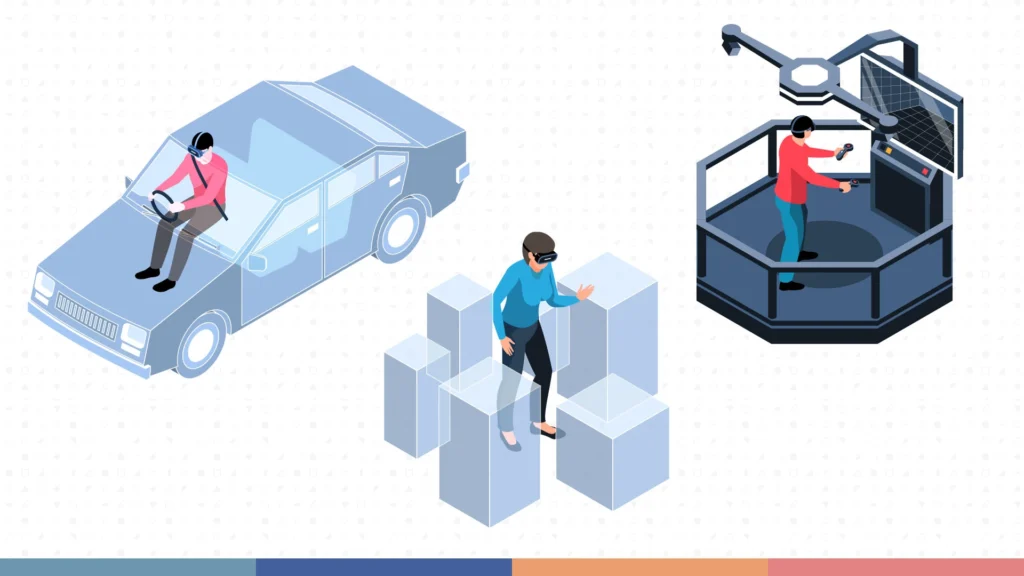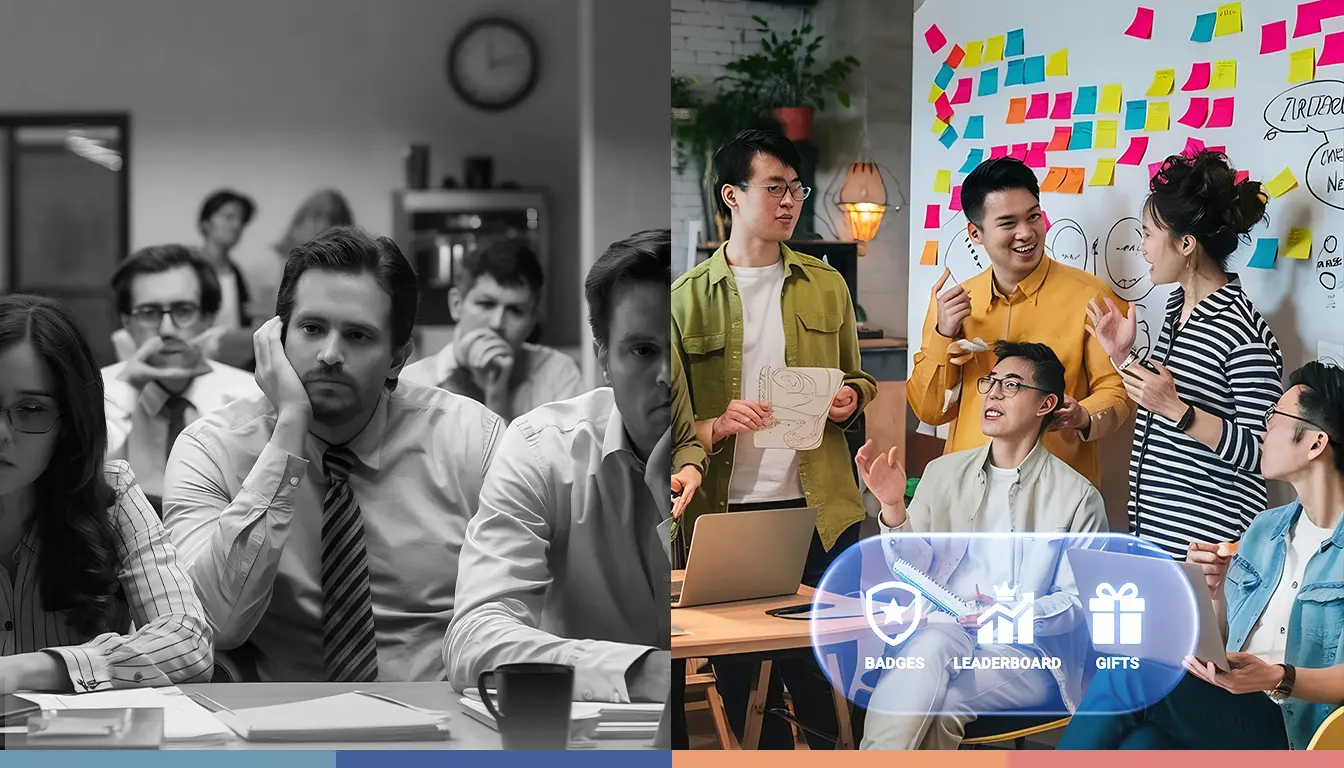Embracing Failure: Games as a Safe Space for Learning and Growth

In traditional educational settings, failure is often viewed as something to be avoided. It can lead to stress, anxiety, and even a decrease in motivation to learn. However, in the context of games, failure is often an integral part of the learning experience, one that can foster growth and skill development. This article explores how games can serve as a safe space to experience failure and why this approach can offer significant benefits in learning and personal development.
Failure in Games: A Productive Paradox
In the article by F. Eamonn Powers and Robert L. Moore titled When Failure Is an Option: a Scoping Review of Failure States in Game-Based Learning, failure in the context of games is seen as an element that is not only unavoidable but also essential for achieving effective learning outcomes. The article explains that failure in games is often designed as part of the instructional mechanics that encourage participants to take risks, explore, and create.
Failure in games, unlike in traditional educational environments, allows participants to experience and learn from their mistakes without long-term consequences. This provides learners with the freedom to experiment with different strategies until they find the right solution. Powers and Moore introduce the term “unit of failure” to describe how failure can be operationalized in game-based instructional interventions. This concept highlights the importance of failure as a tool that supports deep and meaningful learning.
Games as a Safe Space for Failure
In games, failure is often not seen as a negative outcome but as a step toward success. This is evident in the study by Natalia Hefkaluk et al., published in the International Journal of Human-Computer Studies. The study explored how players who enjoy challenging games, such as Celeste, tend to understand and handle failure.
Hefkaluk et al. found that players engaged in difficult games demonstrate remarkable persistence after experiencing failure. They understand failure as part of the learning process and use game design to facilitate their perseverance. For instance, in Celeste, failure is often seen as an opportunity to learn and develop new skills, ultimately increasing the player’s resilience to challenges, both in the game and in real life.
Learning Through Failure: Theory and Practice
The approach of learning through failure in games is supported by educational theories that recognize the importance of failure in the learning process. One such theory is productive failure, proposed by Manu Kapur. This concept suggests that learners who are given the opportunity to struggle through complex problems without direct guidance tend to develop a deeper understanding once they overcome the challenge.
This approach is reinforced by research conducted by Craig G. Anderson et al., published in Thinking Skills and Creativity. Their study analyzed the role of failure in the educational game Virulent and found that a higher level of failure before initial success in the game was associated with greater learning gains. This suggests that failure not only deepens learners’ understanding of the material but also facilitates collaborative discourse that strengthens learning.
Facing Failure with Resilience and Persistence
Not all players react to failure in the same way. Some players enjoy the challenge and keep trying despite frequent failure, while others may feel frustrated and eventually give up. This variety in reactions can be explained through the concepts of growth mindset and fixed mindset, introduced by Carol Dweck.
Players with a growth mindset tend to see failure as an opportunity to learn and grow. They are more likely to persist in the face of difficulty because they value the learning process itself. On the other hand, players with a fixed mindset may view failure as a sign of inherent inability, leading to anxiety and avoidance of further challenges.
The study by Hefkaluk et al. shows that players who enjoy challenging games usually have a growth mindset, which enables them to view failure as a crucial part of the learning process and skill development. The persistence they exhibit in games reflects mental resilience that can be applied to various aspects of life.
Game Design that Encourages Learning Through Failure
Game design plays a critical role in how failure is perceived and understood by players. In Celeste, for example, the design that allows players to immediately retry after failure creates an environment that supports persistence and continuous learning. This effect is enhanced by elements such as motivating music, engaging visuals, and an inspiring narrative.
This design approach aligns with the principles proposed by Kapur in creating learning environments that encourage productive failure. These environments, which are “challenging but not frustrating,” allow players to learn from their mistakes in a safe and supportive atmosphere, ultimately enhancing their understanding and skills.
Moreover, games like Virulent demonstrate how failure in games can be directly tied to learning objectives. By integrating failure into the game mechanics, players can experience learning concepts firsthand through their actions in the game, which deepens understanding and facilitates the transfer of learning to non-game contexts.
Failure in Games: Applications in Real Life
While failure in games can feel safe and free of significant consequences, the lessons learned from these experiences can be applied to real life. The persistence built through failure in games can strengthen resilience in facing real-world challenges. Players learn to stay calm, think analytically, and try again after failing skills that are invaluable in more serious situations.
The study by Hefkaluk et al. emphasizes that while persistence in games may not always match the challenges faced in real life, the strategies players use to overcome failure in games can be effectively applied in broader contexts.
Conclusion
Games offer a safe and supportive space to experience failure, which is quite different from traditional educational settings. By designing games that allow players to learn from their mistakes without fearing severe consequences, we can create environments that encourage deeper learning and stronger skills. In a world that often demands perfection, games demonstrate that failure is not only a part of the learning process but also a vital and productive one.
References:
- Powers, F. E., & Moore, R. L. (2021). When Failure Is an Option: a Scoping Review of Failure States in Game-Based Learning. TechTrends. https://doi.org/10.1007/s11528-021-00606-8
- Hefkaluk, N., Linehan, C., & Trace, A. (2024). Fail, fail again, fail better: How players who enjoy challenging games persist after failure in “Celeste”. International Journal of Human-Computer Studies, 183, 103199. https://doi.org/10.1016/j.ijhcs.2023.103199
- Kapur, M. (2015). Productive Failure in Learning. Educational Psychologist, 50(1), 42-55. https://doi.org/10.1080/00461520.2014.928598
- Anderson, C. G., Dalsen, J., Kumar, V., & Berland, M. (2018). Failing up: How Failure in a Game Environment Promotes Learning Through Discourse. Thinking Skills and Creativity, 30(6), 6-13. https://doi.org/10.1016/j.tsc.2018.03.002
By understanding and embracing failure as part of the learning process, both in games and in real life, we can develop stronger resilience and better skills for facing greater challenges in the future.
If you are interested in learning more about gamification and how it can benefit you or your organization
Check out our gamification services page and contact us today. We are ready to help you create a gamification experience that aligns with your needs and preferences.
The Authors

Junialdi Dwijaputra

Dias Setyanto
Related Articles
- All Posts
- All-EN
- Service Highlight-EN
- News-EN
- Education-EN









